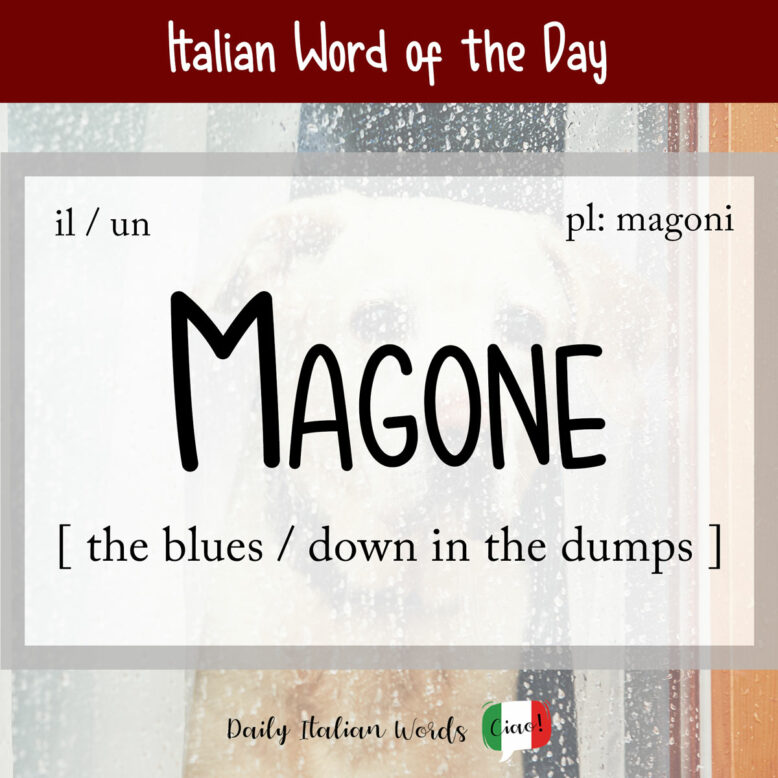If you are feeling depressed, upset or anxious about something, so much so that it causes a feeling of tightness in the stomach, a great word you can use to describe the feeling in Italian is magone.

Magone is a masculine noun that derives from the Lombardic mago, which in turn comes from the Proto-Germanic mago meaning ‘stomach‘. The plural is magoni (but bear in mind that it is almost always used in its singular form) and it takes the following articles:
il magone
un magone
i magoni
dei magoni
There are a number of possible translations in English for this word, depending on the context:
- the blues
- down in the dumps
- a knot in one’s stomach
- a lump in one’s throat
- to get (someone) down
You will usually see it in the company of the following verbs:
- avere (to have) > avere il / un magone
- prendere (to get / take) > prendere il magone
- venire (to come) > venire il magone
- far prendere (to make take) > far prendere il magone (a qualcuno)
- far venire (to make come) > far venire il magone (a qualcuno)
- provare (to feel) > provare un magone
- salire (to rise) > salire il magone
Here are a few example sentences that demonstrate how magone is normally used in context.
Come mai hai il magone oggi?
Why are you down in the dumps today?
Why have you got the blues today?
Mi viene il magone solo a pensarci.
It gets me down just thinking about it.
I get a lump in my throat just thinking about it.
Provo un magone ogni volta che rivedo i video di mio figlio da neonato.
I get a lump in my throat every time I see videos of my son as a newborn.

On a completely unrelated note, magone is also the word for gizzard, the thick-walled part of a bird’s stomach. Despite its similar appearance, it has nothing to do with the word mago which means wizard.
A feminine version, magona, exists but refers to ironworks.
Heather Broster is a graduate with honours in linguistics from the University of Western Ontario. She is an aspiring polyglot, proficient in English and Italian, as well as Japanese, Welsh, and French to varying degrees of fluency. Originally from Toronto, Heather has resided in various countries, notably Italy for a period of six years. Her primary focus lies in the fields of language acquisition, education, and bilingual instruction.


